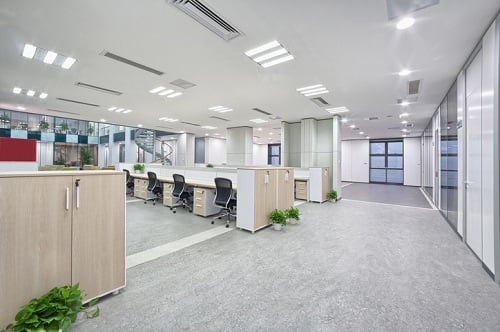Despite committing to new work-from-home strategies, Facebook and Amazon are doubling down on office

Amazon has just announced plans to invest more than $1.4 billion in office space, in an expansion plan that includes six tech hubs in New York, Dallas, Detroit, Denver, Phoenix and San Diego. They also announced plans to hire 3,500 additional workers across the United States. Facebook also recently closed a deal to lease 730,000 square feet of office space in the Farley Building in Manhattan. These two massive plans signify confidence in the future of office space when others in the tech industry have made announcements on embracing telecommuting indefinitely.
In May, Facebook even announced that 95% of their workforce will be working from home until at least 2021, Twitter announced a remote work structure indefinitely, and Google will allow employees to work from home until at least July next year.
Breather CEO Bryan Murphy says it’s interesting to see company cultures and priorities shine through in these announcements. He believes many of the large companies that came rushing out the gates with indefinite work-from-home policies are backing down from some of those commitments as more time has passed and the value of office space became clearer.
“Work from home is undoubtedly going to stick in some ways, but we’ll need to find the right balance,” he said. “There are a lot of different points of view about how we should be going back to work and we are still very much in the middle of decision making.”
When large swaths of the workforce first moved to a remote work structure, people truly believed they were more productive, but that might have been fueled by adrenaline, fear or losing their job, or simply the novelty of the situation at the start. Now that more time has passed, Murphy says the consensus is that full-time work-from-home is not as productive or collaborative as working together.
While work from home is especially useful for employees who have a long commute, or would like more flexibility with families, many miss their colleagues, the opportunity to brainstorm and connect with their teams. Post-pandemic, the balance between working from home and coming into the office will still have huge implications on the office sector.
“Companies will need less office space,” said Murphy. “These uncertain economic times are pushing more companies to want flexibility in lease length and square footage and as a consequence, companies are letting their leases expire. With flex workspace, they can adjust over the next several years to what the new normal will be.”
Murphy is not surprised that office has proven to be more resilient than everyone thought a few months back.
“Now we can see what’s missing. People need a place to work and meet with colleagues, but also meet with clients and industry partners. Deals get done better and faster in person.”
At Breather, the flex workspace provider has seen a spike in interest over the last two to three months, reflective of companies rethinking their office strategy. Breather has upgraded maintenance and cleaning protocols, while adhering to CDC guidelines. Before the pandemic, JLL predicted that 30% of all office space will be flexible in some way by 2030. Murphy believes that timeline has accelerated significantly because of the COVID-10 pandemic.
“Crises tend to accelerate the movement to efficiency and improved solutions. During the Great Recession, we saw a dramatically accelerated acceptance of software as a service (SaaS) and cloud-based services, and this time, we’re going to see a transition from the traditional lease to the on-demand office.”



